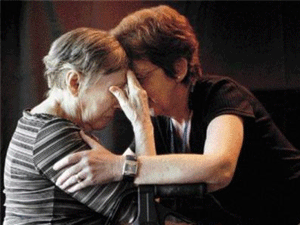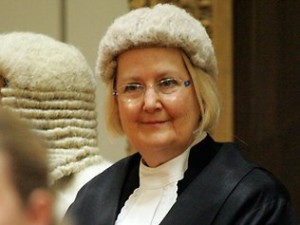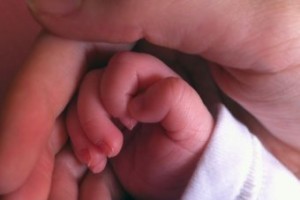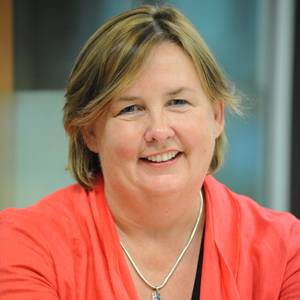 SOME carers are ripping off the very people they are supposed to look after by demanding money be left to them in wills, an estate lawyer has revealed.
SOME carers are ripping off the very people they are supposed to look after by demanding money be left to them in wills, an estate lawyer has revealed.
One of Queensland’s leading estate lawyers, John de Groot, urged debate about whether existing laws were good enough to protect the ageing population.
Mr de Groot said he had seen several cases where carers argued they had been a de facto of the deceased – to the surprise of families – and should receive some of their estate.
“It’s become more of a prevalent issue because of the ageing population,” Mr de Groot told The Sunday Mail.
“What we are finding is that there are some cases where carers say they were in relationships with the deceased.
“Wills are getting challenged in favour of the carer by the testator, who are completely wiping family either in full or by a generous amount.”
He said some carers had also blackmailed their elderly or disabled clients, who did not want to leave their houses and go to nursing homes.
“They basically say, ‘you better leave me something to make it worth my while (to stay)’,” he said.
Mr de Groot said the community needed to become extra vigilant to protect its most vulnerable.
“As a community we have to look at it and ask, ‘does the existing law suit?’ ”
The Courier-Mail yesterday revealed more family members were making claims on estates, and were willing to air the family’s private business and secrets to bolster their chances in court.
However, there also have been cases where carers were bequeathed a large piece of an estate.
Barrister and accredited specialist in estate law Caite Brewer said there were various ways to challenge the validity of a will.
The most common was to argue that the testator lacked the capacity at the time they made the will because they had advanced dementia or due to the effect of medication, Ms Brewer said.
It can also be argued that a testator was unduly influenced by someone else to make their will, or they did not know and approve the will’s contents.
In Queensland, a spouse, de facto, child, adult, step children and some financial dependents have a right to make a claim for family provision on an estate.
In 2004, the Law Reform Commission recommended the laws be changed to limit the eligibility of adult children who made claims on their parents’ estate. Children and dependent adult children would still be eligible under the recommendation.
Related Family Law Judgments
- Bernard & Bernard [2019] FamCA 421 - Family Court of Australia - Henderson J - 05... - September 11, 2020
- Re Cresswell [2018] QSC 142 - Supreme Court of Qld - Brown J - 20/06/2018... - June 20, 2018
- Mead -v- Lemon [2015] WASC 71 - Supreme Court of WA - Sanderson M - 26/02/2015... - February 26, 2015
- Kennon v Spry; Spry v Kennon [2008] HCA 56 - Family Court of Australia - French CJ, G... - August 21, 2014
- Darveniza v Darveniza & Drakos as Executors of the Estate of Bojan Darveniza and ... - March 13, 2014
- R (Plaintiff) v Bong & Ors [2013] SASC 39 - Supreme Court of SA - Burley J - 19/0... - March 19, 2013
- Miller v Duncan Robert Warren as Executor of the Estate of Muriel Josephone Costigan ... - October 29, 2012
- McDougall v Rogers; Estate of James Rogers [2006] NSWSC 484 - Supreme Court of NSW - ... - October 29, 2012
- Jocelyn Edwards; Re the estate of the late Mark Edwards [2011] NSWSC 478 - Supreme Co... - May 23, 2011
- Ye v Fung (No 3) [2006] NSWSC 635 - Supreme Court of NSW - Gzell J - 26/06/2006... - June 26, 2006


 A FATHER of two from Balgowlah has been awarded up to $800,000 in damages after he successfully sued his lawyers for negligence claiming a pre-nup they created was useless in shielding his assets from a divorce.
A FATHER of two from Balgowlah has been awarded up to $800,000 in damages after he successfully sued his lawyers for negligence claiming a pre-nup they created was useless in shielding his assets from a divorce. Against all odds you have found each other, you are in love and know without a shadow of a doubt that you want to spend the rest of your lives together.
Against all odds you have found each other, you are in love and know without a shadow of a doubt that you want to spend the rest of your lives together. Tasmania’s Lower House has passed laws making it easier for same sex couples to adopt.
Tasmania’s Lower House has passed laws making it easier for same sex couples to adopt. HOBART has been ranked as Australia’s fourth most affordable city in which to raise children.
HOBART has been ranked as Australia’s fourth most affordable city in which to raise children.
 Tasmania’s RSPCA has started looking after the pets of families affected by domestic violence.
Tasmania’s RSPCA has started looking after the pets of families affected by domestic violence.